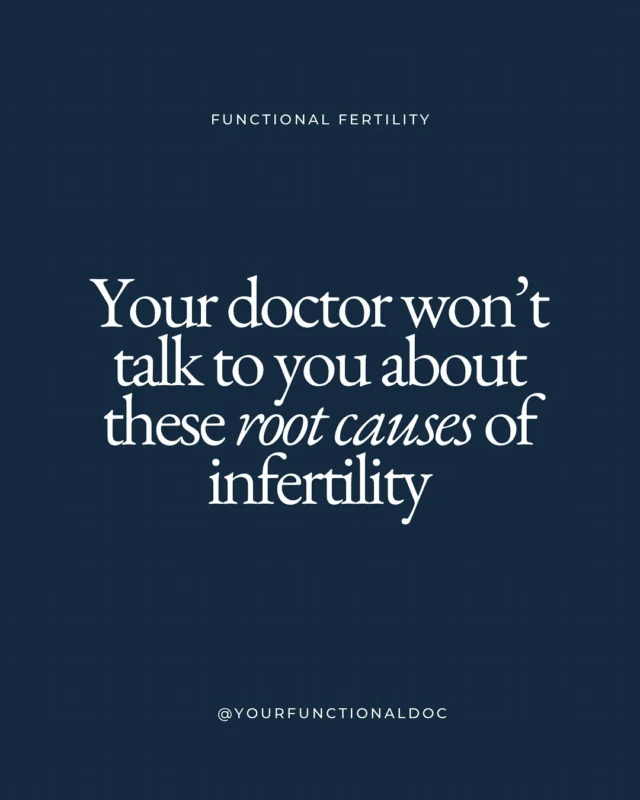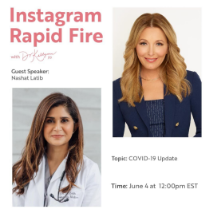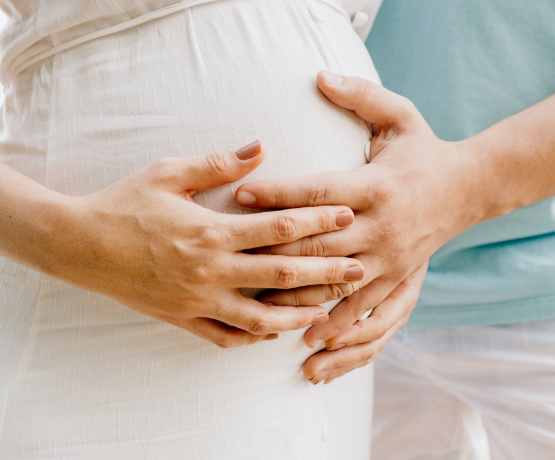The Science of Sleep and Fertility
Sleep is a fundamental aspect of overall health, and it directly impacts reproductive health as well. This week’s article will describe how sleep impacts not only overall physical health, but improves your chances of getting pregnant by increasing your fertility.
Hormone Regulation
Adequate sleep is essential for regulating hormone production, including those involved in the menstrual cycle and ovulation. Irregular sleep patterns can disrupt hormonal balance, potentially affecting fertility.
Gonadotropin-Releasing Hormone (GnRH) and the Hypothalamus
The hypothalamus is a region of the brain responsible for controlling various bodily functions, including the release of gonadotropin-releasing hormone (GnRH). GnRH stimulates the pituitary gland to release luteinizing hormone (LH) and follicle-stimulating hormone (FSH), which are essential for the menstrual cycle and ovulation. Inadequate sleep can disrupt this delicate balance and affect GnRH secretion.
Cortisol
Sleep deprivation or poor-quality sleep can lead to increased levels of the stress hormone cortisol. Elevated cortisol levels can disrupt the normal hormonal signals between the brain and the ovaries, potentially leading to irregular menstrual cycles and ovulatory dysfunction.
Insulin, Appetite, and Sex Hormone Regulation
Sleep deprivation can lead to insulin resistance and impaired glucose metabolism. These changes in metabolism can influence the balance of sex hormones in the body, potentially affecting fertility in both men and women. Additionally, sleep deprivation can alter the balance of hormones involved in appetite regulation, such as leptin and ghrelin. These hormonal changes can lead to overeating and weight gain, which can further disrupt fertility. Finally, sleep disturbances can affect sex hormone production, including estrogen and progesterone in women and testosterone in men. Hormonal imbalances can lead to irregular menstrual cycles, anovulation, and other fertility issues.
Melatonin
Melatonin is a hormone that regulates sleep-wake cycles. It is also known to have antioxidant properties and can help protect oocytes (eggs) from oxidative stress. Disturbed sleep patterns, such as shift work or irregular sleep schedules, can affect melatonin production, potentially impacting fertility.
Dr. Christina and I are committed to providing comprehensive care that addresses more than just fertility concerns. Our approach respects conventional medicine with functional and holistic strategies to get to the root cause of your health issues. If you are looking for functional medicine support in your journey to pregnancy click here to watch our on-demand webinar, where we reveal the 4R Fertility Formula™ we use to work with our clients. If what we share sounds good, we invite you to apply for a spot in our high-touch group program that has over an 80% success rate in helping couples conceive naturally.
Can a melatonin supplement help?
Using a melatonin supplement can be beneficial for improving sleep in certain situations, but it’s essential to use it wisely and consult with a healthcare professional, especially if you are considering it as part of your fertility optimization plan. Melatonin supplements are available over the counter and are often used to help people fall asleep or adjust to new sleep schedules, such as in cases of jet lag or shift work.
Melatonin supplements can be effective for short-term sleep problems, like adjusting to a different time zone or overcoming temporary insomnia. They may also be useful for individuals who have difficulty falling asleep due to factors like stress or anxiety. However, the safety and effectiveness of long-term melatonin supplementation are still being studied. While some individuals use melatonin supplements regularly, it’s essential to be cautious with prolonged use, especially without medical supervision. Long-term use may disrupt the body’s natural production of melatonin.
The appropriate dosage of melatonin can vary from person to person. It’s generally recommended to start with a low dose (e.g, 1 to 3 milligrams) and adjust as needed. Higher doses are not necessarily more effective and can lead to side effects. While melatonin can help with sleep initiation, it’s important to also address any underlying causes of sleep disturbances. Lifestyle factors, stress management, and sleep hygiene practices should be part of a comprehensive approach to improving sleep for fertility optimization.
Chronic Stress and Sleep Regulation
Chronic stress can significantly interfere with fertility in both women and men. As a Functional Medicine practitioner, specializing in natural fertility, I’ve seen the profound impact that stress can have on reproductive health.
Stress triggers the release of the stress hormone cortisol, which can disrupt the balance of reproductive hormones, including those involved in the menstrual cycle and ovulation. High levels of cortisol can lead to irregular periods, anovulation (lack of ovulation), and even amenorrhea (absence of menstruation).
Chronic stress can dysregulate the HPA axis, a complex feedback system involving the hypothalamus, pituitary gland, and adrenal glands. This can result in altered signaling between the brain and the ovaries, leading to fertility issues.
Ovulation Problems
Stress can disrupt the delicate hormonal balance required for ovulation. Women may experience irregular menstrual cycles, which makes it challenging to predict the fertile window for conception.
Stress can impact cervical mucus production and the uterine environment. This can hinder sperm transport and the implantation of a fertilized egg. Additionally, high levels of stress often lead to a decreased sex drive or reduced sexual activity, which can reduce the chances of conception.
Quality of Eggs and Sperm
Chronic stress can potentially affect the quality of eggs in women and sperm in men. Oxidative stress and inflammation generated by stress may harm reproductive cells. In addition to ovulation problems, stress can contribute to conditions like polycystic ovary syndrome (PCOS) and endometriosis, which can negatively impact fertility.
To optimize fertility naturally, it’s crucial to address and manage chronic stress effectively. Stress-reduction strategies such as mindfulness, meditation, yoga, acupuncture, deep breathing exercises, and counseling are some good places to start.
It’s also essential to maintain a healthy lifestyle, including a balanced diet, regular physical activity, and adequate sleep, as these factors can help mitigate the effects of stress on fertility. If stress-related fertility issues persist, seeking the guidance of a licensed functional medicine professional can provide tailored solutions and support to improve your chances of conception.
Sleep’s Effect on Sperm Production
In addition to its impact on women’s fertility, sleep is also crucial for men. Poor sleep can lead to reduced sperm quality and quantity. Sleep quality and duration can have a significant impact on sperm quality and quantity in men. Spermatogenesis, the process by which sperm are produced, is influenced by hormonal regulation. Adequate sleep is essential for maintaining the proper hormonal balance necessary for this process. Disrupted sleep patterns, sleep deprivation, or irregular sleep can disturb hormonal signals, potentially affecting sperm production.
Sperm Count and Motility
Sleep plays a role in determining sperm count, which is a crucial factor in male fertility. Chronic sleep deprivation or poor sleep quality may lead to a decrease in sperm count, reducing the chances of successful fertilization. The ability of sperm to swim effectively (motility) is vital for their ability to reach and fertilize the egg. Sleep disturbances can negatively impact sperm motility, making it more difficult for sperm to navigate the female reproductive tract.
The shape and structure of sperm, known as morphology, also impact fertility. Sleep disturbances can potentially lead to abnormalities in sperm morphology, affecting their ability to penetrate and fertilize the egg.
Poor sleep can contribute to oxidative stress in the body. Elevated levels of oxidative stress can harm sperm quality by damaging the DNA and cell membranes of sperm.
To promote optimal sperm quality and quantity, it’s crucial for men to prioritize good sleep hygiene and ensure they get sufficient, high-quality sleep.
Recommendations for a Good Night’s Sleep
- Duration: Aim for 7-9 hours of sleep per night to support overall health, including reproductive health.
- Consistency: Maintain a regular sleep schedule by going to bed and waking up at the same times every day, even on weekends.
- Cocooning: Create a comfortable and conducive sleep environment that is dark, quiet, and cool.
- Managing Stress: Practice stress-reduction techniques such as relaxation exercises, mindfulness, or meditation to improve sleep quality and reduce the impact of stress on sperm.
- Stimulant Reduction: Reduce or eliminate the consumption of caffeine and alcohol close to bedtime, as these can interfere with sleep.
Conclusion
To promote healthy hormone regulation and optimize fertility, it’s essential to prioritize sleep and maintain a consistent sleep schedule. Aim for 7-9 hours of uninterrupted sleep per night in a comfortable sleep environment. If you or your partner are experiencing sleep-related issues that may be impacting fertility, consider discussing them with a healthcare professional, like Dr. Christina or myself, for tailored guidance and support.











